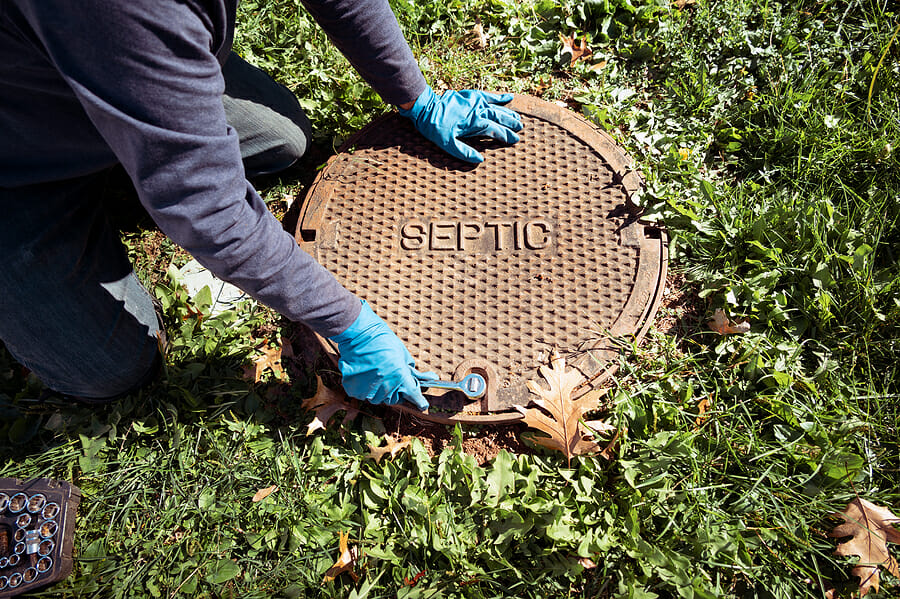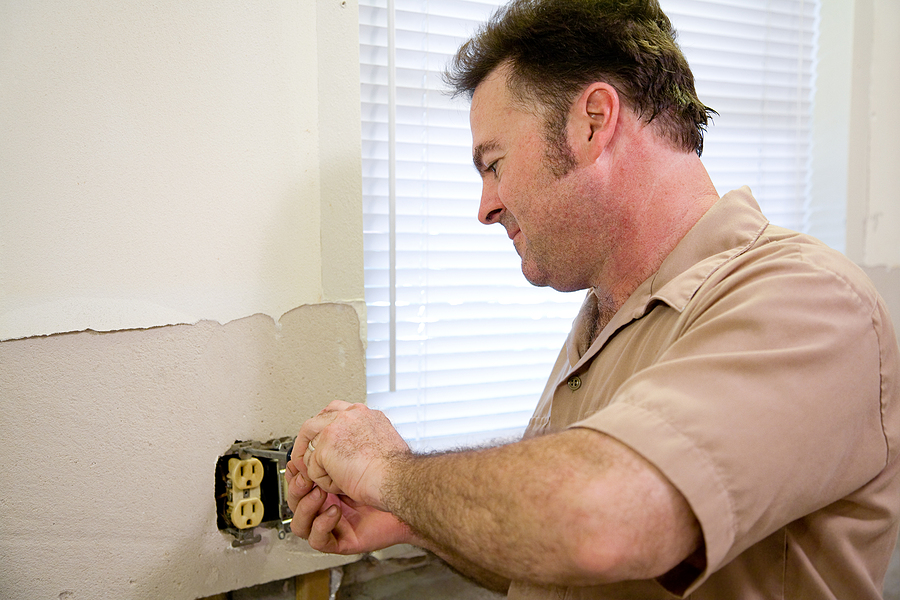If you have a property with its own septic system, then you probably know that when properly maintained wastewater systems can last a long time. One of the ways to keep any septic tank system in good condition is to know exactly how it works.
When wastewater leaves your home, it goes directly into an underground installation facility called a septic tank. As an owner of a septic tank, you know it is commonly used in areas with no central sewerage. Septic tanks have one essential task – purifying the wastewater from your home. That’s why to avoid getting issues such as sewage backups you need to have your septic tank regularly pumped and inspected.
What does a septic tank consist of?
A septic tank is an underground wastewater treatment facility made of concrete, plastic or fiberglass. Its main purpose is to offer storage and basic treatment for all of the wastewater coming from a property.
The wastewater inside a septic tank is divided into three layers. The top layer is called scum and it’s formed from all the light waste solid particles, fats, and oils. At the bottom is the sludge, which consists of all the solids. And the thickest layer is formed at the septic tank’s middle part. It’s a liquid waste (also called effluent) that goes through a special treatment in the septic tank. After the completion of its treatment it’s directed to the drain field.
It’s an interesting fact that the septic tank works continuously. Whenever you use water at your home, it goes into the septic tank, and there it undergoes purification processes. However, the liquid and solid particles accumulate inside the septic tank overtime and as a result this prevents the septic from doing its job properly. Therefore, it is important for you to carry out regular septic tank pumping .
If you are asking yourself “How often should I pump my septic tank?”, then we will give you the answer in the next lines. Every new homeowner with a septic tank needs to know some key things that are important for the proper maintenance of any septic system. One of these things is definitely the frequency of septic tank pumping.
How often should the septic tank be pumped?
The frequency of performing septic tank pumping depends on various factors. It means that there is no general rule that applies in every case. We advise you to consult with a professional company specialized in sewer cleaning services.They will help you determine how often you should pump your septic tank and provide you with a professional service.
There a couple of main factors that determine the frequency of septic tank pumping:
- the number of people living in the house;
- the frequency of water use;
- what size the septic tank is;
- how often you use your laundry appliances and what types of waste you dispose of down the drain (there are some things that aren’t recommended to be flushed down toilet drains);
- whether you have a garbage disposal or water softener system or not, as well as many other factors.
On average, septic tanks are 500, 1000, or 1500 gallons, depending on whether your family consists of 2, 3, 4, or 5 people. Therefore, the average septic tank pumping frequency can vary between 2 and 4 years.
If you observe some signs that suggest your septic tank is not working properly, you should contact a company immediately to inspect the tank and pump it if necessary. Here are the most common signs that indicate an issue with your septic tank:
- Water or smelly black liquid is gurgling up back into the drains inside your home – the cause could be an overly full septic tank or blocked pipe;
- Green grass around the septic tank – if you notice that the grass growing around or on the septic tank is thriving far more than anywhere else in your yard, it means you have a septic tank problem;
- Water pooling in the yard – heavy rains and irregular septic tank pumping can cause it. In any case, if you notice water pooling, then you should seek professional help;
- Unpleasant smells – that is one of the most sure signs that your septic tank is not working properly;
- Slow drains are another signal that there is a high chance some of the sewer system pipes are blocked.
Why should you pump your septic tank?
Regular septic tank pumping is necessary not only for the sake of preventing unpleasant odors. It’s essential for your health, your neighbors’ health, and protecting the environment.
Irregular pumping can have disastrous consequences for you and the fauna and flora, destroying various animal and plant species. An improperly working septic tank predisposes harmful bacteria and viruses to develop, causing severe infections in the human body.
When you clean your septic tank regularly and care for it in the right way, you:
- You will save considerable costs in repairing or replacing the entire septic system;
- You will take care of your health, as well as the health of your family and neighbors;
- You will protect the environment from pollution.
What’s more, we recommend you look for a professional company that offers septic tank pumping. They will inspect your septic system and tell you if some of its elements need to be repaired.
Image Source: BigStockPhoto.com (Licensed)
Related Categories: Home, Reviews








